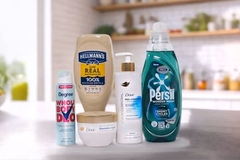EU to host webinar on Ecolabel standards for sustainable cosmetics

The European Commission (EC) is hosting a free, one-hour webinar, “When Beauty Meets Green: The EU Ecolabel for Cosmetic Products,” on December 11 to help companies adopt the certification and answer questions.
The event, which is targeted at beauty industry professionals, will discuss current EU regulations affecting the personal care industry, consumer preferences for eco-friendly cosmetics and the EU Ecolabel’s standards for certifying sustainable products.
The EC says the EU Ecolabel is a certification created to encourage environmental excellence in consumer goods, with over 98,000 products currently bearing the label. It adds that cosmetics adhering to EU Ecolabel standards help the EU achieve its 2050 climate neutrality target and promote the transition to a clean, circular economy free of harmful chemicals.

Experts to meet
Webinar speakers from the EC, Cosmetics Europe, Amazon and the Danish Consumer Council will join the session to share insights and case studies from cosmetic businesses that have successfully obtained the EU Ecolabel.
The EU Ecolabel certification applies to rinse-off products, such as soaps and shampoos, as well as leave-on products like skin care creams and sunscreens.
Two cosmetics manufacturers whose goods have earned EU Ecolabel certification will discuss their certification journey. By participating, they hope to show how businesses can use the EU Ecolabel to improve their environmental impact and satisfy consumer demand for sustainable goods.
 Companies have received 2,983 EU Ecolabel licenses, with 240 new licenses awarded since March 2024.The agenda will include key stakeholders and authorities on environmental and regulatory standards. Topics will include opportunities for businesses to obtain the EU Ecolabel, future perspectives, case studies from cosmetics companies, and application guidance for companies interested in the label.
Companies have received 2,983 EU Ecolabel licenses, with 240 new licenses awarded since March 2024.The agenda will include key stakeholders and authorities on environmental and regulatory standards. Topics will include opportunities for businesses to obtain the EU Ecolabel, future perspectives, case studies from cosmetics companies, and application guidance for companies interested in the label.
Labeling standards
The EU Ecolabel criteria for cosmetics focus on reducing environmental impact across the product lifecycle. Key requirements include:
Minimizing packaging and using recyclable materials.
Reducing toxicity to aquatic life.
Using biodegradable and renewable ingredients.
Limiting the use of hazardous substances.
Reducing CO2 emissions and energy consumption in manufacturing.
The EC notes that the standards align with EU goals of reducing pollution and promoting sustainable business practices, as companies can help consumers make informed, sustainable choices by offering certified products.
The label can be applied to rinse-off products like soaps, shampoos, shower preparations, hair conditioners, shaving preparations and toothpaste, as well as leave-on products such as creams and oils, skin care lotions, hairstyling products, sunscreen products, decorative cosmetics, personal deodorants and antiperspirants.
The webinar will be held from 11:00 am to 12:30 pm CET, and registration is now open on the EC’s website.
Since consumers no longer accept unsubstantiated sustainable cosmetic claims and demand transparency across their products’ entire lifecycle, Personal Care Insights learned about the sustainable practices Lignopure and Syensqo implement in their supply chains to satisfy these demands.
We also reported on a study that found inconsistent certification standards present challenges for brands seeking to meet eco-friendly expectations.













